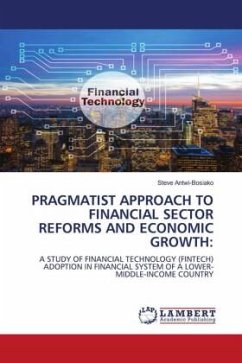Observation and concerns about the financial development and financial system issues in Ghana have become unbearable to policymakers, key stakeholders, and the general public. This study draws on pragmatist approach, mixed methods and quasi-experimental designs to analyze the impact of third generation financial sector reforms and its FinTech adoption practice on economic growth, financial system efficiency, financial development, and technological development of the financial system. A cross-sectional study was conducted on 132 sampled employees and customers, using quantitative, qualitative, primary and secondary data. The study utilized mixed methods data collection methods, and mixed methods data analysis methods. The study utilized NVIVO, SPSS and Excel to process data and produce output. This study finds that both perceived benefit and perceived risk factors jointly impact the viability of the FinTech adoption decisions. This study discovered, on empirical grounds, the stimulating effect of financial sector reforms in accelerating economic growth. The study concludes that there is one-way nomothetic causality relationship between financial sector reforms and economic growth.
Bitte wählen Sie Ihr Anliegen aus.
Rechnungen
Retourenschein anfordern
Bestellstatus
Storno








